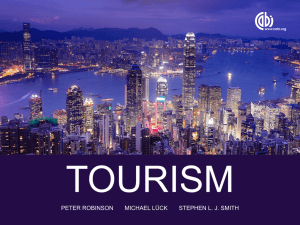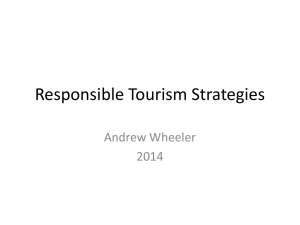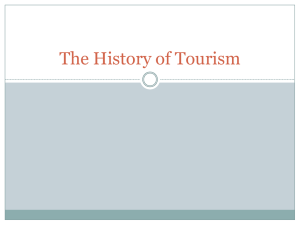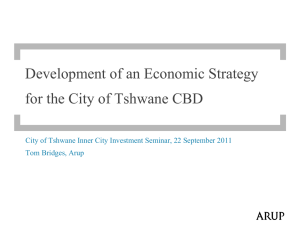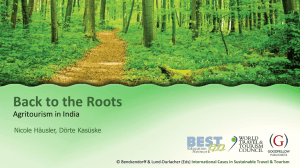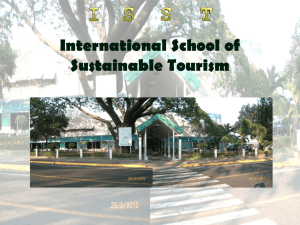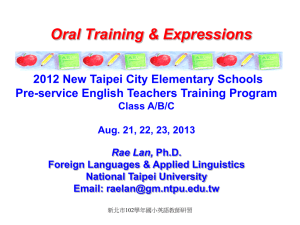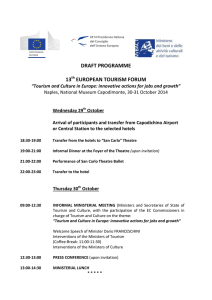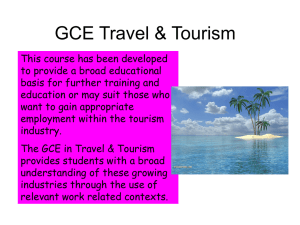File
advertisement
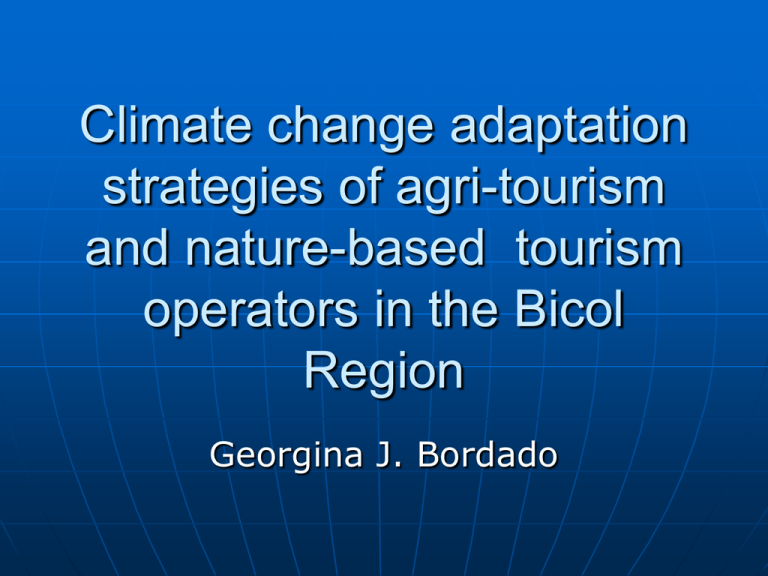
Climate change adaptation strategies of agri-tourism and nature-based tourism operators in the Bicol Region Georgina J. Bordado Rationale Bicol region is fast becoming the number one tourism destination in Central Philippines, one of the four super regions designated as the “tourism hub” as govt’s devt. strategy Tourism in Bicol has been the fast growing industry contributing to its GDP. Rationale Agritourism is the crossroads of tourism and agriculture where the public visit working farms, ranches, to buy products, enjoy entertainment, participate in activities, eat locally grown food, and perhaps make overnight stays for an authentic experience. Rationale Agritourism as engine for rural growth and tourism product development as policy motives Strategy to diversify product and expand benefits to rural areas as these are community-based and propoor Rationale Nature-based tourism is travel that is focused on learning and experiencing about nature Primarily the tourism product packaged by the Dept Of Tourism R5 but still wanting on more agritourism products and services in the future to be globally competitive Rationale However, Bicol is a disaster prone area, particularly with typhoons becoming intense and regular in occurrence due to climate change Imperative for agritourism and naturebased tourism operators to adapt to climate change for survival (increase revenue/income generation) and to continue/sustain attracting domestic and international tourists. Objectives Provide profile of the agri-tourism and nature-based tourism sites in the region as to the 4A’s (attraction, activities,authentic rural food and amenities) Assess their vulnerability, level of awareness and adaptation strategies to climate change and income effects Identify problems encountered and coping mechanisms. Objectives Identify support services availed. Recommend policy agenda and actions Conceptual framework The 4 A’s of Tourism (Attractions, Activities, Authentic Rural Food, Amenities) Climate change and how it impacts on the 4 A’s of tourism Disaster Risk components and how vulnerability happens and how to manage risk and reduce/eliminate vulnerability Costs and returns from climate change adaptation Methodology Respondents; Agri-tourism operators identified by DA RFU-5 particularly the GAWAD Saka awardees, Ecotourism sites/operators, concerned LGUs, agri- and ecotourists, other service providers to these agri-ecotourism sites such as DOT, DTI, DOST, NGOs, etc Methodology Data collection: secondary and primary data, direct observation (triangulation), FGD Data Analysis: qualitative and quantitative, Expected Output Profile of the operators and tourists and as to the 4A’s of tourism Climate change adaptation strategies such as Disaster risk management strategies by type, location and gender Support services availed and technology and training needs Handbook/manual/book on these aspects Program: CLIMATE CHANGE ADAPTATION STRATEGIES OF AGRI-TOURISM AND NATUREBASED TOURISM OPERATORS IN THE BICOL REGION Project 1 - Agri-tourism Study Study Study Study Study Study 1 - …..in Cam Sur 2 - …….in Cam. Norte 3-…….in Albay 4…….in Sorsogon 5----in Catanduanes 6 ……in Masbate Project 2 – Nature-based Tourism Study Study Study Study Study Study 1……….in Cam. Sur 2……….in Cam Norte 3 …….in Albay 4-----in Sorsogon 5-----in Catanduanes 6----in Masbate Budgetary Requirements Project 1 ----1 M Project 2 ------1.5 M
